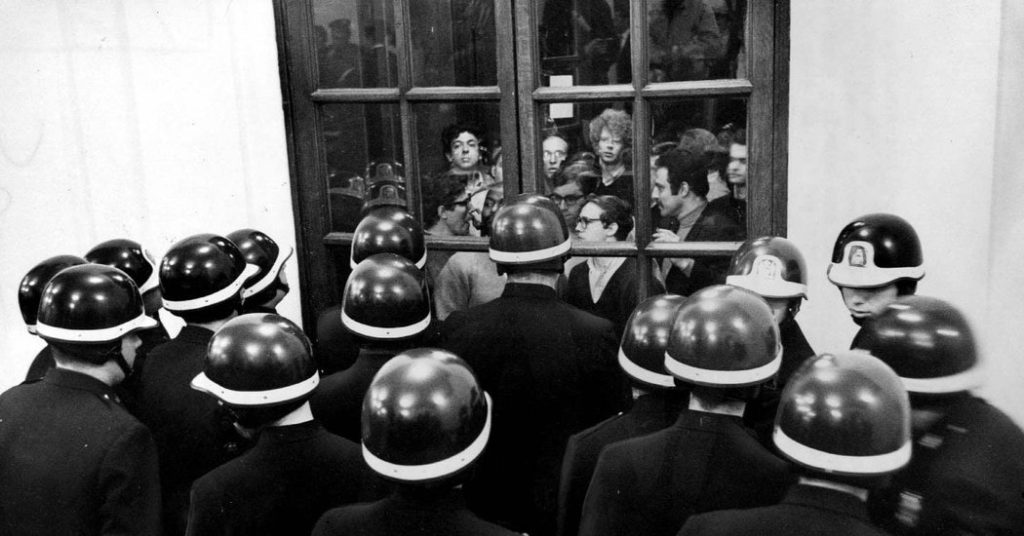Throughout its history, Hamilton Hall at Columbia University has been a focal point for student activism and protest. One of the earliest and most notable instances of protest at the building occurred in 1968 during protests over the Vietnam War, racism, and Columbia’s plans to build a gymnasium. Hundreds of students barricaded themselves inside, preventing the acting dean from leaving his office. The police eventually cleared the building, resulting in over 700 arrests. In May of that year, student protesters occupied the hall again, only to be removed by police after 10 hours.
In 1972, students once again occupied Hamilton Hall during antiwar protests, this time locking doors with chains and using furniture as barricades. The police cleared the building of protesters without any injuries or arrests, but the university threatened legal action. In 1985, protesters demanded that Columbia divest from South African companies, leading to a three-week blockade that ended just before a court order. This protest was seen as a moral victory when the university later agreed to sell its stock in the companies.
In 1992, students blockaded Hamilton Hall in protest of plans to turn the Audubon Theater and Ballroom, where Malcolm X was assassinated in 1965, into a biomedical research complex. The blockade lasted less than a day. In 1996, students demanding the creation of an ethnic studies department at Columbia went on a hunger strike and occupied Hamilton Hall for about four days. While their demand was not immediately met, the university eventually established the Center for the Study of Ethnicity and Race three years later.
These instances of student protest at Hamilton Hall reflect a tradition of activism at Columbia University that spans several decades. The building has been a symbol of resistance to issues such as war, racism, and corporate investment in apartheid-era South Africa. While the outcomes of these protests have varied, they have often led to institutional change and the establishment of new academic programs focused on ethnic and racial studies. The legacy of activism at Hamilton Hall continues to inspire students and faculty to advocate for social justice and change within the university and beyond.















